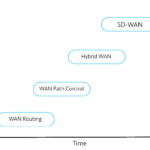According to a recent report pertaining to the U.S. consumers’ attitude about the collection of their personal data has shown that there is an evident disconnection between the claims that has been made by commercial companies that web users are very happy to give up their Online Privacy in order to receive benefits such as discounts. Contrary to this, there are reports which have suggested that there is a huge amount of users who are not happy about this deal but they also feel quite powerless even to get this stopped and avoid companies and marketers to harvest their data.
The author of the report has stated that consumers are paying less attention in terms of the pros and cons of sharing their data, but they are more concentrated on the amount of profits they can expect it return. The report suggests that the more informed a customer is, it makes them resign and helpless as they cannot avoid companies from harvesting their data.
He further stated that even though consumer want to ensure that they have most control over their data but at the same time they feel that they have already lost control. The reports has been given the title as The Trade-off Fallacy: How marketers are misrepresenting American consumers and opening them up to exploitation, and based on the phone survey that was conducted on 1500 consumers who are 18 years and older with occasional internet users.
Key findings of the survey on the American Consumers highlighted that:
- One being questioned whether they are comfortable in companies collecting their personal information without their consent and knowledge in return of a discount, 77% of them strongly disagreed and 91% disagreed.
- 77% of them disagreed to the fact that they will not like a store (Where they shop) to use or monitor any of their information about the time they are spending online. Irrespective of the fact that the store might give free internet connection of no charge Wi-Fi. 53% of them also strongly disagreed with the same.
- When asked if they are ok if any of the shop uses their personal information to create a profile of image for increasing their business and improve their services, 38% of the consumers strongly disagreed and 55% disagreed with the same.
But the report also suggested that 4% of the consumers agreed with all the above points that were given to them. The report also highlighted that a large number of consumers are not sure about usage and purchase data on line can be given out third parties even without their consent.
Many a times this has been done one a false pretence of providing data protection that is well protected by law. The report indicates that the lie about increasing online privacy is getting unravelled. Commercial collection of data on the pretence of offering discounts has been on high. More or less it is coming that the data of the consumers is being stolen and the consumers are not even aware about the same.

 Why Your Link Building Efforts Might Fail
Why Your Link Building Efforts Might Fail  How to Request or Give Remote Control in a FaceTime Call on iPhone
How to Request or Give Remote Control in a FaceTime Call on iPhone  The Rise of Intelligent Automation in Business Operations
The Rise of Intelligent Automation in Business Operations  The Best Ideas for Designing Your Custom Printed Ring Binder
The Best Ideas for Designing Your Custom Printed Ring Binder  How Technology is Changing the Way We Play Hearts
How Technology is Changing the Way We Play Hearts  The Rise of Open Source: A Journey to Innovation and Collaboration
The Rise of Open Source: A Journey to Innovation and Collaboration  How SD-WAN Is Revolutionizing Business Networks
How SD-WAN Is Revolutionizing Business Networks  Effective Digital Advertising Strategies for Modern Businesses
Effective Digital Advertising Strategies for Modern Businesses  Tips for Marketing Dental Packages: Easy Ways to Grow Your Reach
Tips for Marketing Dental Packages: Easy Ways to Grow Your Reach 